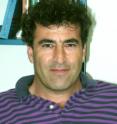A new drug treatment to close the window on colon cancer
Cancer surgery wreaks havoc on a body's immune system and stress hormones exacerbate the problem. As a result, about half of those who undergo surgery for tumor removal experience a recurrence of cancer in the same region or other parts of the body. A new clinical approach being developed and tested by Tel Aviv University researchers may be the key to making cancer operations more successful. Prof. Shamgar Ben-Eliyahu, head of Tel Aviv University's Department of Psychology, has opened on a new frontier in cancer research: he is recruiting colon cancer patients for a new clinical study which will test a cocktail of drugs to prevent the negative effects of stress responses to surgery. If successful, it will help the immune system maintain its vigor and prevent the occurrence of new tumors.
Prof. Ben-Eliyahu described his method in a recent issue of the Journal of Immunology.
A more competent immune system
Prof. Ben-Eliyahu and other research teams have confirmed that a competent immune system is critical before, during and after surgery for tumor removal. However, stress responses of the body during this period jeopardize immune competence and facilitate tumor metastasis.
Combining two widely-known medications that affect immune and stress responses, Prof. Ben-Eliyahu has developed a formula he hopes will keep an immune system strong and prevent the recurrence of cancer. Already tested in animal models, the compounds will be employed in a clinical trial in Israel, for which Prof. Ben-Eliyahu's team is currently recruiting patients and funds. They hope to have 800 colon cancer patients participate in the trial, due to begin shortly.
Increasing survival 300%
According to Prof. Ben-Eliyahu, the main stress hormones that appear to negatively impact immune system functioning are released before and during surgery. He says that existing generic drugs could block the influence of these hormones, helping the body to better fend off the stressors of surgery.
In animal studies, Prof. Ben-Eliyahu found that by blocking these hormones he could increase long-term post-operative survival rates from cancer by as much as 300 percent. If his new study on human volunteers succeeds, it could set a new paradigm for cancer treatment and post-surgery recovery rates. "In rats and mice it works with great success, really beautifully," says Prof. Ben-Eliyahu.
In the upcoming trial, Prof. Ben-Eliyahu will boost patients' immune systems with his drug cocktail over a 20-day period, before, during and after surgery. The two compounds to be used in the study are a beta-adrenergic antagonist, which is used to treat hypertension and anxiety, and a Cyclooxygenase-2 inhibitor, used against inflammation and pain. Since the two drugs are already widely available and routinely used in the clinical setting, no patents need be filed for the application of these drugs.
Source: American Friends of Tel Aviv University
Other sources
- A new drug treatment to close the window on colon cancerfrom PhysorgWed, 21 Jul 2010, 19:35:32 UTC
- A new drug treatment to close the window on colon cancerfrom Science BlogWed, 21 Jul 2010, 19:14:12 UTC
